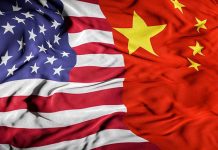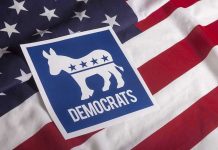
Robert F. Kennedy Jr., Trump’s choice for Health and Human Services Secretary, plans to ban prescription drug ads on television, sparking debate and potential legal challenges.
At a Glance
- RFK Jr. proposes banning pharmaceutical TV ads as incoming HHS Secretary
- Elon Musk and other key figures support the ban
- Pharmaceutical companies spend over $5 billion annually on ads
- Legal challenges expected, citing First Amendment concerns
- The U.S. and New Zealand are the only high-income countries without strict regulations on drug ads
RFK Jr.’s Bold Proposal
Robert F. Kennedy Jr., slated to lead the Department of Health and Human Services under the new Trump administration, has unveiled a controversial plan to eliminate prescription drug advertising on television. This proposal aims to curb the pharmaceutical industry’s influence on public perception and healthcare choices by restricting ads that often promote expensive treatments with questionable efficacy.
While running his own presidential campaign in May, Kennedy had pledged to issue an executive order banning pharmaceutical ads on TV, citing their significant impact on media coverage and public health decisions. This move aligns with his longstanding criticism of the pharmaceutical industry and its marketing practices.
Support from Key Figures
The proposal has garnered support from influential figures in the incoming Trump administration and beyond. Tech entrepreneur Elon Musk has voiced his agreement with the ban, writing on X, “No advertising for pharma.”
Brendan Carr, Trump’s pick for FCC chair, also supports the initiative, expressing concern that the United States is “way, way too overmedicated.” Carr believes the FCC could play a role in enforcing such a ban, signaling a potential shift in regulatory approach.
The Impact of Pharmaceutical Advertising
The pharmaceutical industry currently spends over $5 billion annually on television advertisements, which have proven highly effective in boosting sales. Heavily advertised drugs like AbbVie’s Skyrizi and Novo Nordisk’s Ozempic have generated significant revenue, far exceeding their advertising expenditures.
RFK Jr.'s Plan to Ban Big Pharma Ads Could Hit TV Networks Hard https://t.co/IvorrBZLcV
— Jeffrey Burlew (@JeffBurlew) January 11, 2025
Critics argue that these ads often promote expensive treatments with minimal added benefits. A study found that drugmakers tend to spend more on advertising for medications with lower added benefits, raising concerns about the ethics and public health implications of such marketing strategies.
Legal Challenges and First Amendment Concerns
While the proposal aims to address legitimate public health concerns, it faces significant legal hurdles. Previous attempts to limit pharmaceutical advertising have been blocked by courts, often citing First Amendment protections for commercial speech. The Trump administration’s earlier effort to regulate drug commercials by requiring price disclosure was similarly thwarted by a federal judge.
Legal experts anticipate intense opposition from major pharmaceutical companies if the ban is pursued. The industry is likely to argue that such restrictions infringe upon their right to communicate with consumers and provide valuable health information.
A Global Perspective
The United States and New Zealand stand out as the only high-income countries that do not strictly regulate direct-to-consumer prescription drug advertisements. This exceptional status has long been a point of contention among healthcare professionals and policymakers.
The American Medical Association called for a ban on direct-to-consumer drug ads in 2015, citing concerns over increased demand for expensive treatments and potential negative impacts on the doctor-patient relationship. This professional stance underscores the complex interplay between marketing, healthcare, and public policy.
Looking Ahead
As the debate over pharmaceutical advertising continues, the proposed ban represents a significant shift in approach to healthcare marketing and regulation. Whether Kennedy and the Trump administration can overcome the legal and industry challenges to implement such a sweeping change remains to be seen. The outcome of this initiative could have far-reaching implications for the pharmaceutical industry, healthcare costs, and public health in the United States.

















